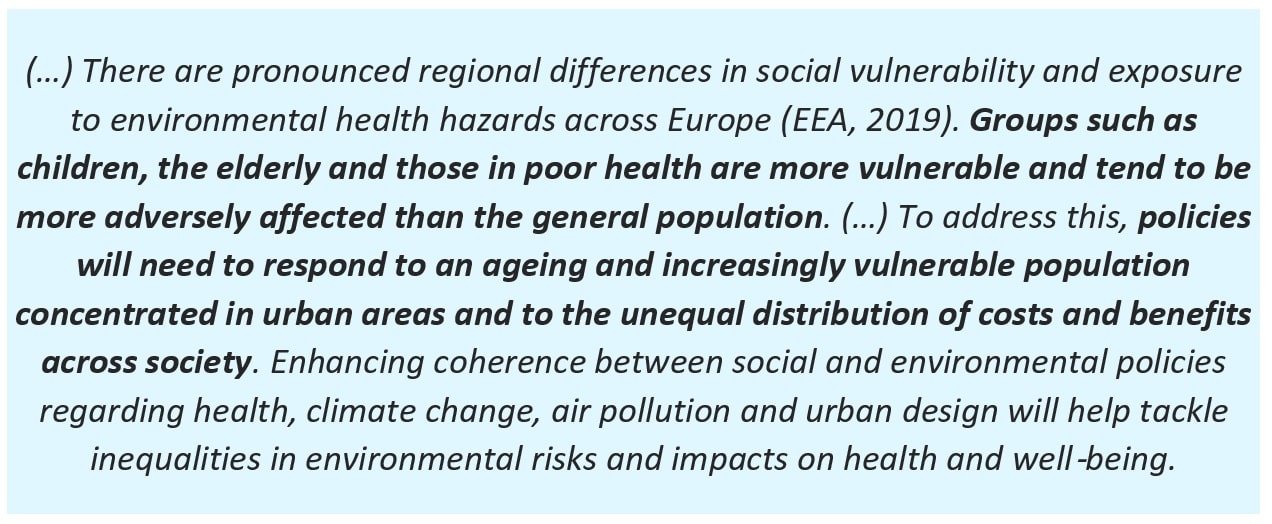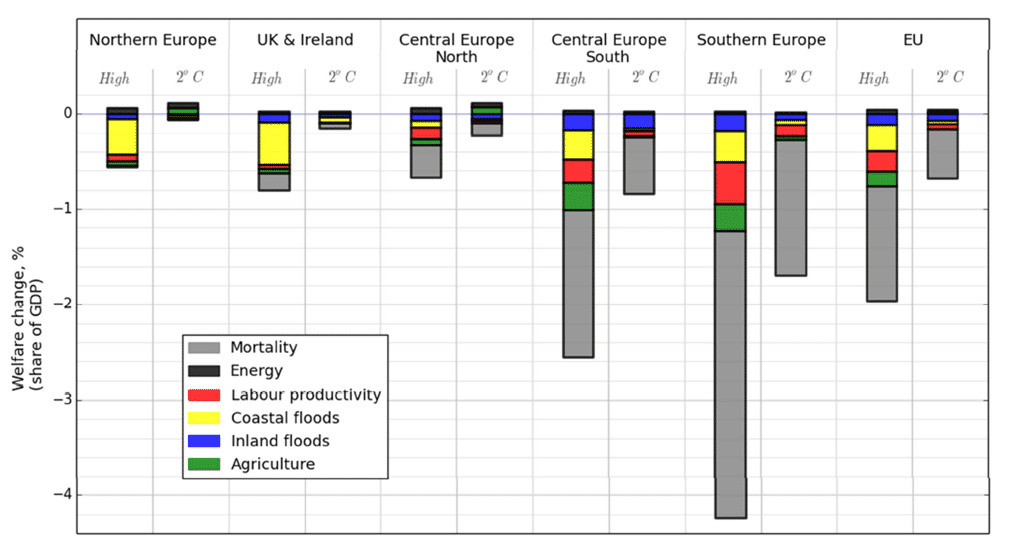
Photo by Daniel Funes Fuentes on Unsplash

Declaration adopted by AGE members – 12 June 2019
As the Final Declaration of our General Assembly 2019 reflected, the current environmental challenges go far beyond generational cleavages. They should mobilize all age-groups in looking at common solutions that are environmentally and socially sustainable, and fair to all.
According to a recent Eurobarometer on the Attitudes of Europeans towards Air Quality (419 – Sept. 2019), a majority of Europeans want the EU to do more on air quality -for instance 63% of Europeans are aware of the EU quality standards but they think that they are not adequate and should be strengthened. The European Environment Agency makes clear in its Europe’s state of the environment 2020 that a change of direction is urgently needed to face the climate change and its dramatic consequences that are already apparent. Likewise, the European Court of Auditors warned about the human and economic costs of air pollution “not yet been reflected in adequate action across the Union”.
A new EU political context, but the same hurdles
Citizens’ mobilisations through climate strikes and the numerous scientific reports have influenced the new European Parliament and European Commission. Climate change is the first priority of the new President of the European Commission, Ursula von der Leyen, who presented on 11 December her European Green Deal. End of November 2019, the European Parliament declared “Climate emergency”.
Still a number of hurdles will have to be overcome soon, starting with budget pressure: a report published by the World Health Organisation shows that “countries are increasingly prioritising climate change and health, with half of the countries surveyed having developed a national health and climate change strategy or plan. Worryingly, only about 38% have finances in place to even partially implement their national strategy of plan, and fewer than 10% channelling resources to implement it completely”. At the same time, it looks like the negociations around the next EU budget (2021-2027) are around big compromise for climate and the COP25 shows again how much political will and leadership are critical to make significant progress.
Addressing social, health and geographical inequities of climate change
One of the key issue is actually to implement solutions that are environmentally and economically sustainable, but that will also address the inequity impact of the climate change. Persons in vulnerable situation are more exposed to the impact of climate change, this is notably the case of older persons, children, people with low incomes or disadvantaged backgrounds:

European Environment Agency – The European Environment – state and outlook 2020:
knowledge for transition to a sustainable Europe – December 2019
The 2019 annual edition of the Employment and Social Developments in Europe “Sustainable growth for all: choices for the future of social Europe” shows the socio-economic impact of climate inaction for Europe, with a clear geographical difference: southern Europe will be particularly impacted in terms of mortality:

Charter 5.1 – Welfare losses (% of GDP) for two climate inaction scenarios (high warming scenario and 2˚C scenario)
Source : European Commission, PESETA III studies, Joint Research Centre, Sevilla
Inaccurate studies
A number of reports and articles underline the vulnerability of older persons regarding their exposure to climate change. Yet it is not very easy to gather clear figures about the impact of climate change on older persons’ situation, notably on their health.
One of the reasons might be due to the use of an indicator that de facto excludes older persons, namely “premature death” which tends to overlook the situation of 65+. It is striking that the World Report on Ageing and Health (WHO, 2015), a comprehensive tool mapping the health situation of older persons, is not really considering the impact of climate change on older persons’ health. It mainly focuses on natural disasters and emergency situation, which are indeed one important side of the coin but clearly not the only one. For instance, air pollution is not considered while the impact of outdoor and indoor air pollution is impacting older persons’ health, especially those who are already facing chronic diseases, like chronic obstructive pulmonary disease (COPD).
So far in Europe, heat waves and heat stress have probably been the most visible issues linked to climate change and older persons. For example, the Lancet Countdown underlines the particular “vulnerable situation of Europe to heat exposure due to its ageing population, high rates of urbanisation, and high prevalence of cardiovascular and respiratory diseases, and diabetes“.
Getting a comprehensive overview would mean considering the exposure of older persons to air pollution (indoor and outdoor), noise, hazardous chemicals and climate change which results notably in extreme weather conditions (e.g. heat waves with heat stress and water stress impacting the nutritional supply chain).
AGE’s commitments
AGE will use a number of opportunities to highlight the issues faced by older persons in a climate change context and support on-going initiatives and projects:
- Promote the initiative of the WHO for a Decade of Healthy Ageing and advocate for a strong alignment with the Sustainable Development Goals, notably between Goal 3 – Good Health and Well-Being, Goal 11 – Resilient and sustainable cities and communities and Goal 13 – Promote effective climate change,
- Continue to advocate for and support the implementation of age-friendly cities and communities across the European Union in order to address the different challenges of ageing, urbanisation and climate change,
- Promote the role played by older persons in citizens’ mobilisation to tackle the climate change through our Ageing Equal Blog
- Take opportunity of relevant EU funded project such as Homes4Life to consider specific dimensions, e.g. sustainable housing for the future and energy saving in dwellings
- Support findings of projects and initiatives such as the INHERIT project (2016-2019) coordinated by EuroHealthNet or “Health impacts and health costs of diesel emissions in the EU” coordinated by the European Public Health Alliance (EPHA), as strong advocacy tool for a radical change;
In addition to the hyperlinks in the article, here are a number of interesting resources:
> European Environment Agency: https://www.eea.europa.eu
> WHO Europe:
> EPHA Campaign “Clean Air for Health”
> EuroHealthNet, Policy Précis “Making the link: Air Pollution and Health”
> Activism – Grand-parents for the climate






